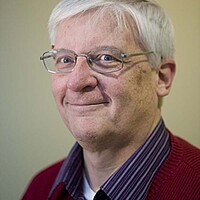Volunteering helps to promote 'One America'
Loading...
Helping those in need isn't a liberal or a conservative idea. It isn't Democratic or Republican.
It's simply American.
That's the message behind One America, a new initiative by Points of Light, which calls itself the world’s largest organization dedicated to volunteer service.
Americans "always seem to unite around one thing, and that is service to the community, service to others, helping people realize their full potential as humans," says Neil Bush, chairman of Points of Light.
Despite that tradition, a partisan divisiveness has created a kind of paralysis in Washington that "has become part of our culture," says Mr. Bush, who is the son of President George H.W. Bush and brother of President George W. Bush. "To counter that we believe that a campaign to highlight how we unify around service could be just the thing to move the country in a better, more constructive direction, where even people who have disparate interests find ways to work together."
The One America effort is taking on three issues: education, hunger, and protecting the environment. It began at an event in Columbus, Ohio, in July that was followed by Sept. 11-related activities in New York City last week. Future events will take place in Chicago, Miami, Houston, Atlanta, Phoenix, Los Angeles, and Washington D.C.
In Houston, Bush's hometown, "I'm hoping to be able to attract people of different political persuasions, different faith interests, and corporate interests, and have them all participate in a 'One America' launch," Bush said in a telephone interview last week. The aim will be a real "roll up your sleeves" effort, he says, not "just some Kumbaya moment where everyone gets together and talks about the importance of unifying around service."
In the 21st century Americans have rallied together to recover from sudden disasters, from the Sept. 11 attacks to the devastation left behind by hurricanes and tornadoes. But persistent, long-term disasters need attention too, Bush says.
"So long as we have communities where there are high rates of illiteracy, or there are high dropout rates, or where [there is] teenage pregnancy, where there are high levels of violence – I view them as persistent problems, problems that create an underclass," Bush says. There is a need for volunteer helpers, for one-on-one mentors, for group projects, "for volunteers to come in and serve in a way that gives everyone the potential to realize their God-given strength and live the fullest life," he says.
Points of Light was founded in the 1990s, inspired by a speech by President George H.W. Bush in which he commended the many Americans who became "points of light" by helping others. Since then, volunteerism has grown: There were 22 million to 23 million Americans doing volunteer work back then, Neil Bush says. Today there are more than 65 million.
Points of Light recently celebrated making its 5,000th award to outstanding volunteers at a White House ceremony attended by President Obama and President George H.W. Bush.
Neil Bush's daughter, Lauren Bush Lauren, is an example of a younger generation that's putting its own imprint on volunteering, he says. The "proud father" notes that she started an organization when she was a Princeton University student called FEED that has "caused over 60 million meals to be served in Africa" and 10 million meals in schools in the United States, Bush says.
Social media such as Facebook and Twitter are transforming the way people can volunteer. A friend can ask a friend online to join in a volunteer effort. People can quickly self-organize when a disaster strikes. Volunteers may even be able to see online how many slots to serve are left open or how others volunteers have rated this activity.
"There's a lot of work being done in [social media], and it's very exciting to me," Bush says.
A growing body of research suggests that volunteering is a "win win" activity that also benefits givers by making their lives happier and perhaps even longer. "People feel good serving others," he says.
And it's easy to start. "You just go. You roll up your sleeves and go," Bush says. "You're participating in an activity with friends. It's a joyful experience and kind of a part-social experience. But you're helping provide a benefit to the community."
• For more information, go to www.pointsoflight.org.








